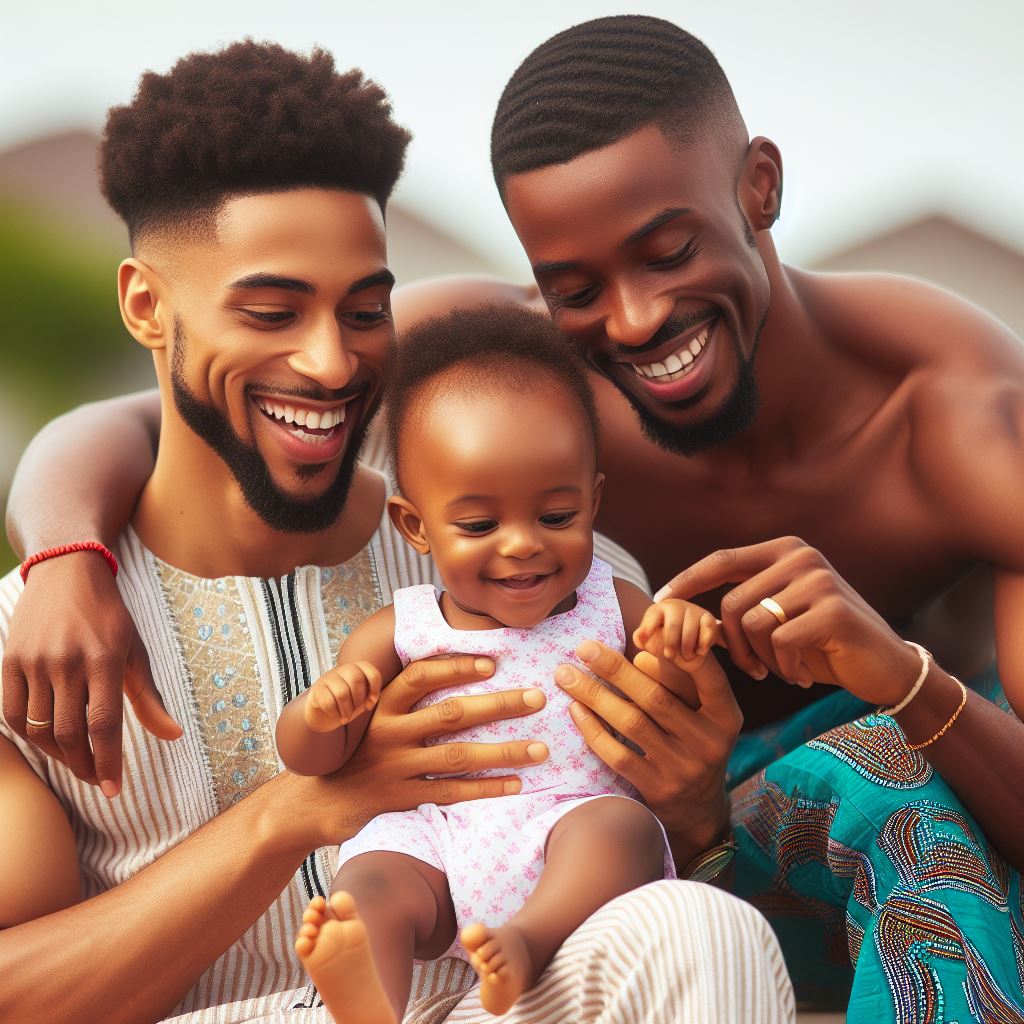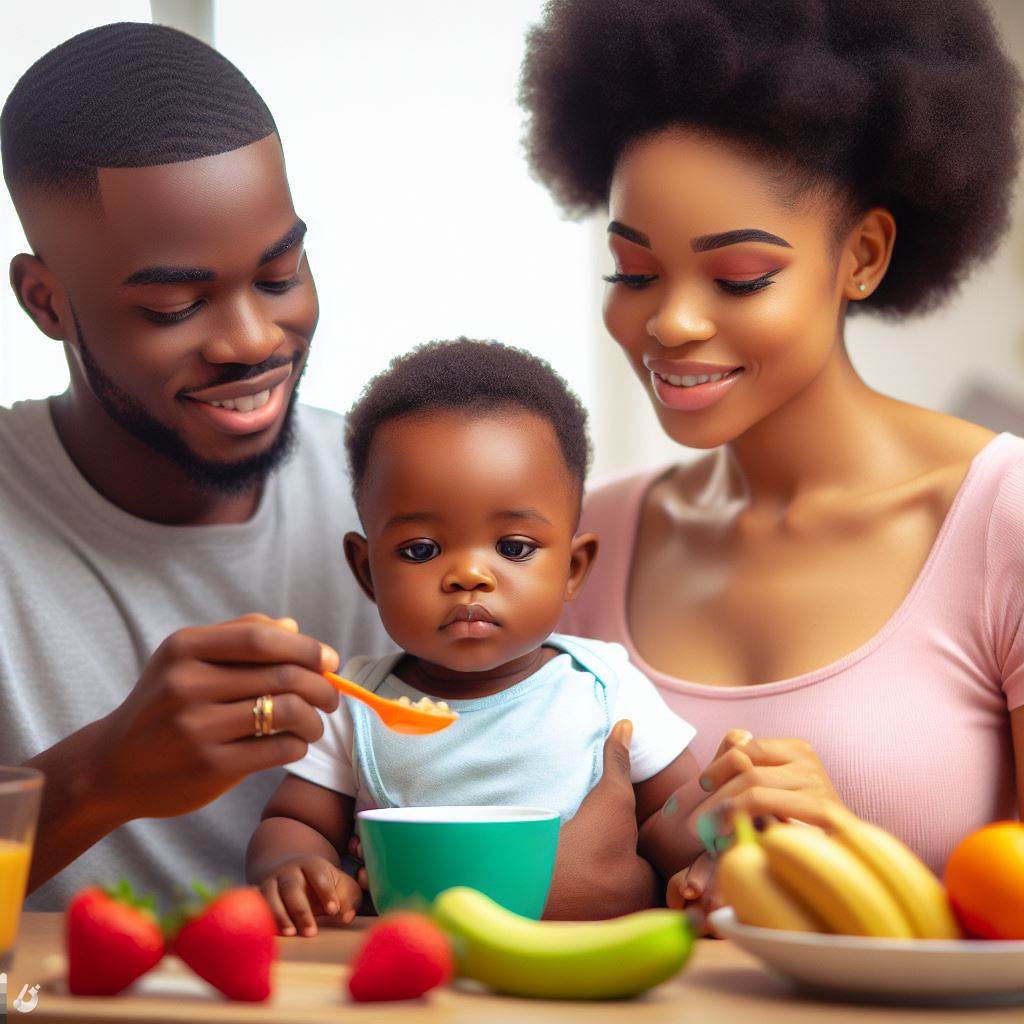Introduction
Nigeria, a diverse nation, boasts rich cultural tapestries influencing baby development.
These influences encompass traditions, beliefs, languages, and societal norms.
Importance of Cultural Influences on Baby Development
Cultural facets deeply mold a child’s cognitive, emotional, and social development.
The interplay of customs, rituals, and values significantly shapes a baby’s perceptions and behaviors.
Cultural diversity within Nigeria, spanning over 250 ethnic groups, fosters a varied environment for infants.
This amalgamation of customs cultivates a unique foundation for a child’s growth.
From birth, babies absorb cultural nuances through interactions with family, community, and societal practices.
Language acquisition, influenced by cultural diversity, shapes cognitive processes crucial for future learning.
Moreover, cultural practices impact parenting styles, nurturing emotional resilience and sociability in infants.
Concepts like communal child-rearing instill a sense of collectivism and interdependence from an early age.
Art, music, and storytelling traditions in Nigeria deeply resonate in baby development, fostering creativity and imagination.
These elements play pivotal roles in shaping a child’s worldview.
Understanding cultural influences aids in creating responsive and inclusive caregiving environments.
Awareness of customs ensures respect for diverse practices, fostering a sense of belonging for infants.
Research suggests that exposure to diverse cultural experiences positively impacts a child’s adaptability and empathy.
Parenting Made Just for You
Get personalized Parenting Solutions tailored to your child’s needs. Transform your parenting journey with expert guidance in 1-3 days.
Get StartedEmbracing cultural diversity from infancy fosters open-mindedness and tolerance in later stages of life.
Comprehending the significance of cultural influences on Nigerian baby development underscores the foundation of a holistic and culturally attuned approach to nurturing the future generation.
Read: Essential Baby Safety Tips Every Nigerian Should Know
Overview of Nigerian Culture
Nigeria, with its vast population and diverse ethnic groups, is home to a rich and dynamic culture that greatly influences the development of its children.
This section provides an overview of Nigerian culture, highlighting its diversity and key cultural aspects that shape the upbringing of Nigerian babies.
Diversity and richness of Nigerian culture
Nigeria is a country with more than 250 ethnic groups, each having its unique customs, languages, and traditions.
This diversity makes Nigerian culture incredibly rich and fascinating.
The major ethnic groups include the Igbo, Yoruba, and Hausa-Fulani, but there are many other smaller tribes with distinct cultural practices.
From music and dance to cuisine and clothing, Nigerian culture embraces a wide range of artistic expressions.
Traditional music genres like juju, fuji, and highlife, combined with vibrant dance styles such as the bata and shoki, showcase the creativity and rhythm that define Nigerian music and dance traditions.
Nigerian cuisine is known for its flavorful and diverse dishes.
From jollof rice and egusi soup to suya and pounded yam, Nigerian food represents the fusion of various local ingredients and cooking techniques.
Sharing meals is an essential aspect of Nigerian culture, fostering a sense of community and togetherness.
Key cultural aspects to be explored
Several key cultural aspects significantly influence the development of Nigerian babies:
Unveil the Perfect Name that Tells Your Family's Story
Let us help you find a name that embodies your family's values, traditions, and dreams. Our personalized consultation weaves cultural insights to create a name that's uniquely yours.
Get Started- Family and Community: In Nigeria, family and community play a crucial role in child-rearing.
Extended families often live together, creating a support system for parents and ensuring children grow up in a close-knit environment.
Grandparents, aunts, and uncles actively participate in childcare. - Language and Communication: Nigerian babies are exposed to multiple languages from an early age.
English, as the official language, is widely spoken, while local languages, such as Igbo, Yoruba, and Hausa, are also commonly used.
The ability to communicate in various languages enhances linguistic skills and cultural understanding. - Religion and Spirituality: Nigeria is a religiously diverse nation, with Christianity and Islam being the dominant faiths.
Religious beliefs and practices heavily influence baby development, shaping moral values, rituals, and worldview. - Educational Values: Education holds immense importance in Nigerian culture. Parents emphasize academic achievement and strive to provide their children with access to quality education.
This focus on education fosters intellectual development and ambition among Nigerian babies. - Gender Roles: Traditional gender roles are prevalent in Nigerian society, with distinct expectations for boys and girls.
While societal shifts are challenging these roles, they still influence child-rearing practices and gender socialization.
In fact, Nigerian culture, with its diversity and richness, plays a significant role in shaping the development of Nigerian babies.
The aspects of family, language, religion, education, and gender all combine to create a unique environment that influences every stage of a child’s growth.
Understanding and appreciating these cultural influences are essential for promoting the optimal development and well-being of Nigerian children.
Read: Diapering Essentials for New Parents in NG
Cultural Influences on Nigerian Baby Development
Cultural influences play a pivotal role in shaping the development of Nigerian babies across various domains, encompassing language, family dynamics, customs, nutrition, childcare, and parenting styles.
Language and Communication
- Importance of Native Language Acquisition: Nigerian babies are immersed in diverse languages, highlighting the significance of acquiring their native tongue.
This early language exposure fosters a strong cultural identity. - Role of Language in Cognitive Development: Language acts as a cornerstone for cognitive growth.
Through storytelling and oral traditions, babies learn problem-solving and critical thinking within their cultural context.
Family Dynamics and Socialization
- Extended Family System’s Impact on Baby Development: The extended family setup in Nigeria contributes significantly to baby development.
Multiple caregivers impart diverse values, fostering a sense of belonging and support. - Socialization Practices and Cultural Values: Cultural values, respect, and communal living are ingrained through socialization practices.
Babies learn societal norms, enhancing their adaptability within the community.
Customs and Traditions
- Rituals and Ceremonies in Baby Development: Nigerian rituals and ceremonies hold deep significance in a baby’s life.
Naming ceremonies and rites of passage establish cultural ties and familial bonds. - Traditional Practices and Emotional Growth: Traditional practices, like baby massage and communal celebrations, promote emotional well-being, providing a sense of security and belonging.
Nutrition and Feeding Practices
- Impact of Traditional Nigerian Food on Health: Nutrition plays a pivotal role in Nigerian baby development.
Indigenous foods rich in nutrients bolster overall health and immunity. - Introduction of Solid Foods and Cultural Preferences: The introduction of solid foods aligns with cultural preferences, often integrating traditional recipes and practices, ensuring a balanced diet.
Childcare and Parenting Styles
- Role of Parents and Caregivers in Nigerian Babies’ Upbringing: Parents and caregivers emphasize holistic development by instilling cultural values, morals, and traditions from an early age.
- Discipline Techniques Rooted in Cultural Norms: Disciplinary methods are deeply rooted in cultural norms, emphasizing respect, communal guidance, and instilling discipline while fostering independence.
In short, Nigerian baby development is intricately intertwined with cultural elements, shaping their identities, beliefs, and overall growth.
Understanding these cultural influences is pivotal in creating supportive environments for their optimal development.
Read: Baby Bathing Gear for Nigerian Households

Challenges and Benefits of Cultural Influences
When it comes to the development of Nigerian babies, cultural influences play a significant role.
These influences can bring both challenges and benefits to the overall growth and upbringing of these infants.
Potential challenges faced by Nigerian babies
1. Balancing cultural traditions with modern practices
Nigerian babies may face challenges in balancing their cultural traditions with the modern practices prevalent in the society.
As Nigeria becomes more globalized, there is a clash between traditional customs and the influence of a rapidly changing world.
2. Influence of Western culture and its effects
Western culture has had a significant influence on Nigerian society, which can impact the development of babies.
Exposure to Western values, lifestyles, and media can lead to a shift in norms, potentially challenging the traditional upbringing of Nigerian infants.
Benefits of cultural influences on baby development
1. Strong sense of identity and belonging
Cultural influences provide Nigerian babies with a strong sense of identity and belonging.
Through traditional practices, rituals, and language, these infants develop a connection to their heritage, fostering a sense of pride and belongingness.
2. Transmission of cultural heritage and values
Cultural influences enable the transmission of Nigerian cultural heritage and values from one generation to the next.
Through storytelling, music, dance, and other cultural practices, babies learn about their roots, history, and the values cherished by their community.
In general, cultural influences have both challenges and benefits when it comes to the development of Nigerian babies.
Balancing traditional customs with modern practices and the influence of Western culture can pose difficulties.
However, the strong sense of identity, belongingness, and the transmission of cultural heritage and values are invaluable assets for these infants.
It is important for parents and caregivers to navigate these influences effectively to ensure a holistic development for Nigerian babies.
Read: Feeding Gear Essentials for Nigerian Babies
Conclusion
Recap of the importance of cultural influences on Nigerian baby development
Cultural influences play a pivotal role in shaping a Nigerian baby’s holistic development.
From language acquisition to social norms, these factors deeply impact a child’s upbringing.
Parents impart values, beliefs, and traditions that sculpt a child’s identity. Cultural practices provide a foundation for emotional, social, and cognitive growth.
Encouragement to embrace and celebrate cultural diversity in child-rearing
Embracing cultural diversity enriches a child’s worldview and fosters inclusivity. Celebrating differences cultivates respect, empathy, and a sense of belonging.
Exposing children to diverse customs enhances adaptability and promotes open-mindedness.
It broadens their perspectives, fostering a more interconnected and harmonious society.
Call-to-action for parents to explore and understand their own cultural influence
Parents are urged to explore their heritage and understand how it shapes their parenting.
Learning about cultural roots empowers them to pass down meaningful traditions.
Understanding one’s cultural influence enables parents to make informed decisions. It aids in nurturing a strong sense of identity and pride in children.
Acknowledging and embracing cultural influences in Nigerian baby development is pivotal.
It’s a collective responsibility to ensure children grow up appreciating the richness of their heritage while embracing the diversity around them.
Let’s unite in fostering an environment where every child can flourish, guided by the wisdom and beauty of diverse cultural perspectives.




